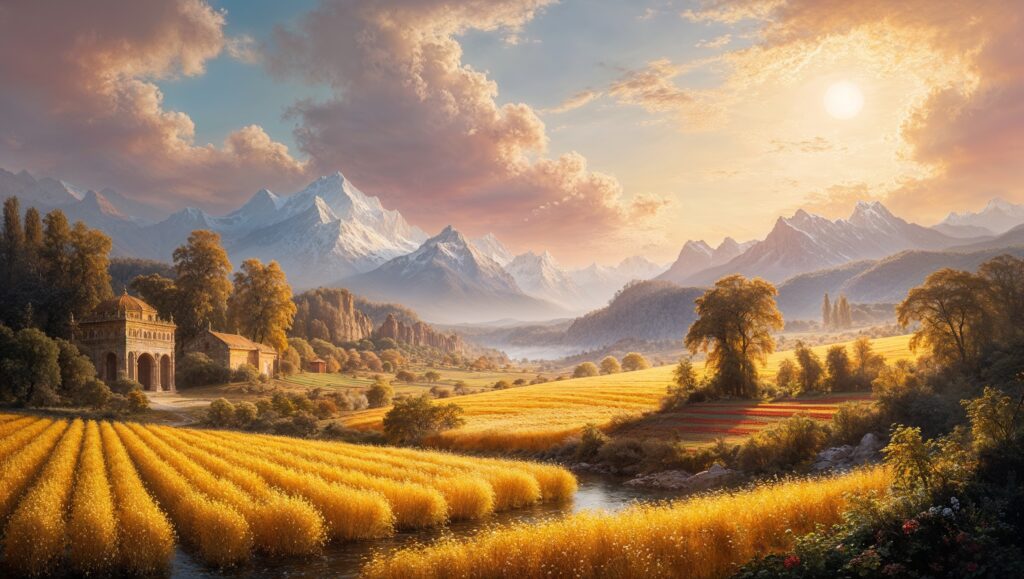In today’s digital age, we live in an environment of constant consumption. From social media feeds to streaming platforms, it’s all too easy to get caught up in a cycle of endless scrolling, binge-watching, and consuming information. But there’s a growing movement that goes against the grain—becoming a creator.
In a world dominated by consumption, it might seem difficult to imagine that creating can offer something far more fulfilling than being a passive participant in this cycle. However, creators are the ones who are finding true fulfillment, purpose, and success in ways that consumers simply can’t. But why?
1. Creators Control Their Narrative
When you consume content, you passively absorb what others have made. You follow trends, opinions, and the general direction set by someone else. This can lead to feelings of apathy, as you aren’t contributing your own thoughts, ideas, or experiences to the world.
On the other hand, creators have the power to shape their own narrative. They choose what they produce, how they communicate it, and what impact they want to leave. This autonomy brings fulfillment because it taps into the deeper human need to express individuality and leave a lasting mark on the world.
2. The Psychological Power of Creation
Psychologists have long discussed the sense of purpose and fulfillment that comes from creative expression. Creating something—whether it’s an art piece, a video, a blog post, or a product—activates regions of the brain that are associated with satisfaction and reward. Creators often report feeling a sense of pride and accomplishment when they produce something from nothing.
Consumption, however, doesn’t trigger these same psychological rewards. While watching a movie or browsing a social media feed might provide temporary pleasure, it lacks the deeper sense of achievement that comes with creation. In a world where many feel unfulfilled and disconnected, creators experience a sense of meaning that consumers miss out on.
3. Creators Build Connection
While consumers interact with content in a one-sided manner, creators have the opportunity to build a community around their work. Whether it’s a YouTube channel, a blog, or an online store, creators forge connections with their audience. These interactions—whether through comments, likes, or conversations—allow creators to feel a sense of belonging and purpose.
Creators often find that their work resonates with others in ways they didn’t anticipate, forging deeper connections and fostering a sense of community. In contrast, endless consumption can often lead to isolation, as it tends to be a solitary activity that leaves individuals disconnected from others.
4. The Fulfillment of Problem-Solving and Innovation
In the realm of creativity, many creators find themselves constantly solving problems, whether that’s figuring out how to bring an idea to life or solving a customer’s needs. This sense of innovation is deeply rewarding and often pushes people to learn, grow, and continuously evolve.
Consumers, on the other hand, rarely experience this sense of growth. When you’re consuming, you’re not solving problems or creating solutions—you’re simply receiving. It’s a passive experience, often devoid of the challenge and learning that creators thrive on.
5. Financial Freedom and Independence
In addition to the emotional and psychological benefits of creating, creators often have the opportunity to monetize their work. Whether it’s through ad revenue, sponsored partnerships, selling a product, or offering services, creators have the potential to build a sustainable income by sharing their talents with the world.
With the rise of digital platforms, the barriers to entry for becoming a creator are lower than ever. Anyone with an internet connection and a creative spark can turn their passions into profits. In contrast, consumers are often left at the mercy of the companies they purchase from, without the opportunity to tap into that sense of financial autonomy.
6. A Shift Toward a Creator Economy
The world is shifting toward a “creator economy,” where the most successful individuals are those who build, innovate, and share with others. From TikTok influencers to indie game developers, creators are rewriting the rules of success. This movement has been fueled by platforms like YouTube, Instagram, and Patreon, where creators can directly connect with their audience, bypassing traditional gatekeepers like media companies or publishing houses.
In the creator economy, those who actively produce are not only building personal brands but are becoming the new leaders and tastemakers. Meanwhile, the consumption-driven culture of passive entertainment and shopping is beginning to feel more and more empty.
7. The Fulfillment of Legacy and Impact
Ultimately, becoming a creator is about leaving something behind—whether it’s a piece of art, a book, a service, or a piece of software. Creators have the opportunity to make a lasting impact that continues long after they’ve moved on. Consumers, in contrast, are often left with nothing more than memories of what they’ve consumed.
As more people realize the power of creation, we’ll likely see an even greater shift toward creator-driven cultures and communities. Rather than passively accepting what’s given to us, individuals will be empowered to take control of their stories, their brands, and their futures. And in doing so, they’ll unlock the true potential of fulfillment, purpose, and success.
In a world where consumption is limitless, it’s easy to forget that true happiness doesn’t come from what we take in, but from what we put out. Creators are the ones shaping the future—leaving behind something that is uniquely theirs. The path to fulfillment lies in creating, not consuming, and embracing that truth is the first step toward living a life of purpose and impact.




